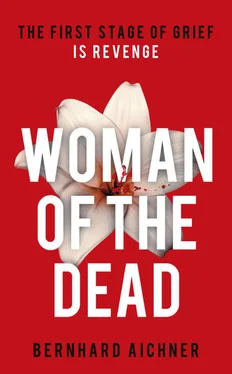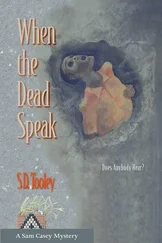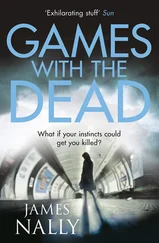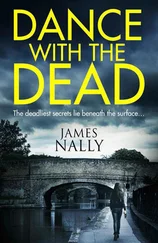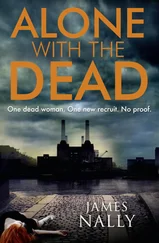‘Did you understand what I said?’
‘You must get me to a hospital.’
‘You are going to tell me everything.’
‘What do you want from me? This is madness. Let me go. Please.’
‘I want to know who the other three men are. Where I can find them, their names.’
‘I need painkillers.’
‘Your pain is of no importance now.’
‘For God’s sake put that lighter away.’
‘There were five of you. After Edwin Schönborn, that leaves three other men.’
‘What are you talking about?’
‘Don’t say the wrong thing, because you aren’t going to get a second chance.’
‘I am a priest.’
‘That didn’t help the girls and the boy.’
‘We can talk about that later. It’s not what you think.’
‘No, it’s worse, much worse, and you know it.’
‘I don’t know who those men are. They wore masks. I have no idea who the others are. You must believe me.’
‘Why are you lying?’
‘I’m not lying.’
‘None of them will help you now.’
‘Do you want money? The diocese will set it all up. I can get you as much money as you want.’
‘You think you can go back to your cathedral and do good works, just as if nothing had happened?’
‘I never did anything else. You must believe me.’
‘Dunya. Ilena. Youn.’
‘They were lost souls. I was caring for their souls, don’t you understand? You must put that lighter away now and untie me.’
‘What about the boy? What did you and the others do to him?’
‘I can help you. You can still go back. It doesn’t all have to end like this. God will forgive you, believe me. His mercy is infinite.’
‘Hold your bloody tongue.’
‘I can see that you’re unhappy, you have strayed, you can’t find your way back to the path of righteousness. You are helpless and desperate, let me stand by you. Please. Untie me.’
‘I was very happy once.’
‘You will be happy again. But only if you put that lighter down. What you’re doing won’t help anyone.’
‘My happiness is dead.’
‘I suggest we pray together. Whatever has happened to you, you can leave it behind you. Look at me. You have run me over, my bones are broken. You’ve put me in the boot of a car, hit me and poured petrol over me. And yet I am ready to see the goodness in you. God’s help enables us to bear any pain.’
‘The police officer you and your friends knocked down was my husband.’
‘I’m really sorry. But every loss can be overcome. You must look forward again, let life in once more.’
‘Yes, you’re right about that.’
The things he says. The things he doesn’t say. Asking anything else is pointless; he’d rather die than talk. Blum knows that. So she sets him on fire. Slowly and calmly she leans forward and holds the lighter to his clothes. As if she were lighting a candle, she sets the priest on fire, even if her reason tells her what she is doing is madness. She sees flames. The priest’s wide, staring eyes. The way he roars, abuses her. The wolf is trying to savage her with words. Jaunig begins to burn.
Slowly, Blum gets to her feet and climbs up on deck. She doesn’t turn to look back, she no longer hears his screams. She watches the sky grow gradually lighter. She doesn’t see Jaunig trying to tear himself free, tossing desperately back and forth, screaming for his life, trying to protect his face. She doesn’t see his burning clothes, his hair, his skin, she just stands there looking at the morning sky. For two long minutes, there is nothing but Blum and daybreak. Everything in her is still. She inhales the sea air, breathing deeply in and out. Then she goes below once more.
The foam from the fire extinguishers has preserved the boat from major damage. She protected everything round him, distributing the contents of three fire extinguishers on the floor and seats of the cabin. She tied Jaunig so tightly to the table that the flames remained under control, consuming only him. Blum has done it all exactly right. She acts very fast now. She throws blankets over Jaunig to put out the flames. There is smoke and soot everywhere, the mess looks like purgatory. Jaunig lies on the table before her. Jaunig is no longer breathing. The good Lord failed to come to his aid.
Blum surveys the scene. The boat has suffered damage to the cabin floor, upholstery and ceiling, and the mast. All the same, she smiles. She’ll have the cabin renovated. For years she’s been wanting to drive the spirit of Herta and Hagen out of the boat, restore it to her taste, not Hagen’s. Now is the time and Jaunig has given her a reason. She will have it entirely refurbished in the spring and throw away the old fixtures and fittings. She will fulfil a dream, go sailing with the children in May. Everything she can see will be gone. There’ll be nothing to remind her of Jaunig.
Blum is keeping watch. She has been sitting on the bench in front of the cathedral for over two hours, waiting. It is early morning, and she has driven all through the night, from Trieste to Innsbruck in four hours, twenty-four minutes. She wanted to get back to her children, to her family, to be rid of Jaunig at long last. So far no one has seen the plastic bag from the supermarket. The bag doesn’t look right here, it ought to attract attention. It cries out to be taken down from the cathedral door where Blum hung it. For two hours, she has been waiting for something to happen; for someone to find it.
Yesterday Blum was still at sea. It was a sunny day, a wonderful day. Exhausted and happy she let the boat drift on the water. She had done the right thing. Jaunig was dead. Blum hasn’t often had burnt bodies on her preparation table, only a few times in her life. She went down to the cabin and stared at him, fascinated to see what damage the fire had done in just two minutes. The fire had taken hold everywhere his body was exposed, disfiguring his face, his hands.
Blum cut the dead priest’s head off. It had all gone to plan; she put a bucket under the table and hacked at his neck with an axe until the head came away. She caught his blood in a bucket. Then she got rid of the body and cleaned up the blood. It was only a small cabin fire, an accident in the mess area, a candle she had forgotten to blow out. Blum scrubbed and scoured the soot on the cabin ceiling, the charred table. It almost looked as if nothing had happened. Then she put Jaunig’s head in a plastic bag, and threw his body to the sharks.
It was Mark who had told her about them. Had told her there really were sharks off the coast of Trieste, and they came in from the open sea to land with the freighters. These sharks were a threat to tourists, and were kept away from the beaches by gratings. But they swam directly under the point where Blum was letting her boat drift; the sea was twenty-four metres deep here. It was a good resting place for Jaunig’s body, though not his head.
Blum doesn’t want him to disappear and be forgotten. She wants people to know that this man has done something so terrible he had to die for it. Blum wants to flush the toads out of the undergrowth, scare them out of cover, give them a fright. Something would happen, she thought, a sign of what she should do next. Jaunig is dead. He refused to confess and that was a sin. Blum has learned nothing except that Jaunig was one of them, and had known about Mark’s death. Had been amused by it. Every loss can be overcome. You must look to the future, let life in once more. Blum can still hear his words, and then the click of her lighter.
Twelve hours ago, she was still at sea. Now she is staring at the bag. She is sitting under a tree, fifty metres from Jaunig’s head. You wouldn’t notice her at first glance; she is at home in this peaceful scene: the cathedral, the fountain and a woman reading a book in the morning air. A woman waiting for someone to take the head out of the plastic bag.
Читать дальше
